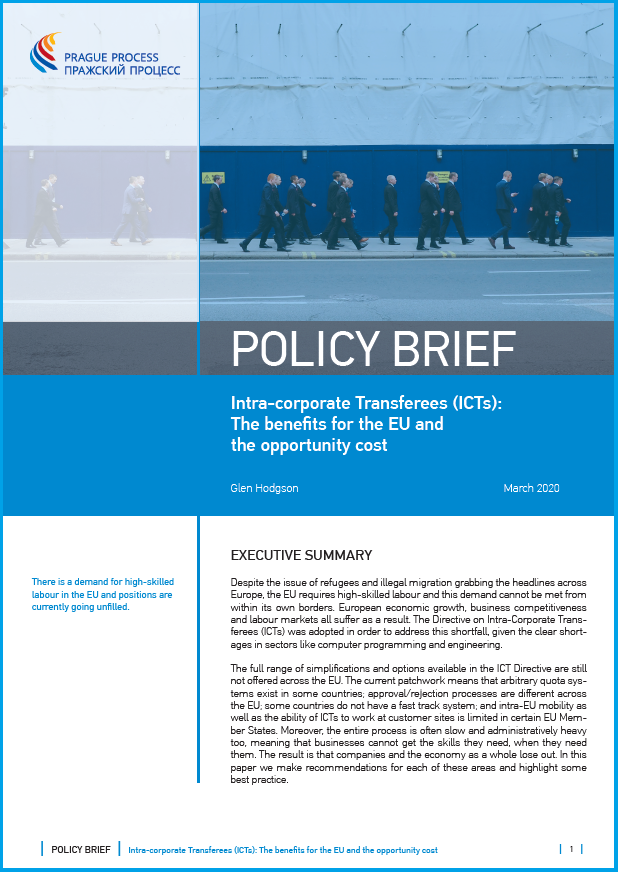Intra-corporate Transferees (ICTs): The benefits for the EU and the opportunity cost
30 March 2020
Briefs
Despite the issue of refugees and illegal migration grabbing the headlines across Europe, the EU requires high-skilled labour and this demand cannot be met from within its own borders. European economic growth, business competitiveness and labour markets all suffer as a result. The Directive on Intra-Corporate Transferees (ICTs) was adopted in order to address this shortfall, given the clear shortages in sectors like computer programming and engineering.
The full range of simplifications and options available in the ICT Directive are still not offered across the EU. The current patchwork means that arbitrary quota systems exist in some countries; approval/rejection processes are different across the EU; some countries do not have a fast track system; and intra-EU mobility as well as the ability of ICTs to work at customer sites is limited in certain EU Member States. Moreover, the entire process is often slow and administratively heavy too, meaning that businesses cannot get the skills they need, when they need them. The result is that companies and the economy as a whole lose out. In this paper we make recommendations for each of these areas and highlight some best practice.

